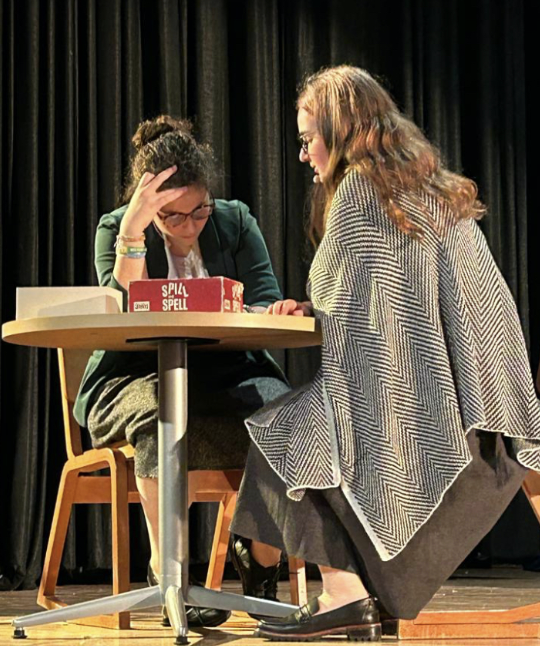Letters to Sala
This year, Ramaz chose to perform the play Letters to Sala. The play is based off of Sala Garncarz Kirschner, a Polish Jew who spent five years in a labor camp in Nazi Germany. While in the labor camps, Sala wrote over 350 letters describing her experiences in the camps. Sala wrote about everything, including her work, friends, love interests, and feelings during this dark time. The play alternates between Sala’s experiences in the labor camp and fifty years later when Ann, Sala’s daughter, inherits Sala’s letters. Ann is sucked into her mothers stories, and sees the letters as important historical documents that need to be preserved and displayed to the public. However, Ann’s daughters, Caroline and Elisabeth, see this as betrayal to their grandmother, believing that the letters are emotionally rich relics that should be kept within their family. Ultimately, the two daughters realize that the letters would do more good in a library, displayed to the public, so that other people can hear their grandmother’s story.
The Ramaz production of Letters to Sala consisted of a small, but talented cast. Cast members included Abby Gurwitz, Jordan Kalker, Thea Katz, Sophie Obstfeld, Max Olsen, and Alyssa Rose. Additionally, Sami Rose Fishman and Lila Ellman were on lights, and Rachel Buller and Andrew Weiss were on instrumentals. The play was directed by Mr. Brooke, the new theater director at Ramaz. The Ramaz production was the smallest of all previous performances of this play, as well as the first completely Jewish cast. They handled their small cast size very well, with each performer playing several different roles. Each cast member had their own coat rack at the back of the stage which they used to switch costumes and characters. The cast worked extraordinarily hard to put on this production, practicing at least twice a week for over three hours. Their hard work definitely paid off!
The Upper School had the privilege to hear from Ann. Introduced by Sophie Obstfeld, who played Ann in the Ramaz production, Ann told students about her personal experience with the letters. One memorable thing that Ann explained was the story of her favorite character, Ala Gertner. Ala was Sala’s friend and mentor in the labor camp, and their friendship lasted for years — even after Ala was sent to Auschwitz. With the help of Ala and many others, the rebel group blew up Crematorium IV in Auschwitz. Ala was one of four women to be involved in this operation, and was publicly hanged on January 5, 1945, just a few weeks before the camp was liberated. Ala fought to survive and make a positive impact despite the horrors surrounding her. In 1991, Ala Gertner, along with her three counterparts in this operation, received a dedication at Yad Vashem for their heroic acts.
Another memorable thing that Ann mentioned was the amount of time it took to translate all of the letters. Since Ann inherited the letters before the World Wide Web existed, she had to hire a translator to translate the letters before she could unpack their stories. This process took almost ten full years! Ann’s determination to understand and share her mothers story is astounding, and it is through her hard work that many peoples’ stories mentioned in Sala’s letters were not lost forever.
Overall, the Ramaz production of Letters to Sala was not only a spectacular one but also a meaningful one. There is so much to be learned from all of the characters in the play. Courage, friendship, family, and survival are all recurring themes in the play. This production has allowed the Ramaz community to gain further knowledge and understanding of the Holocaust through the lens of Sala’s stories.



